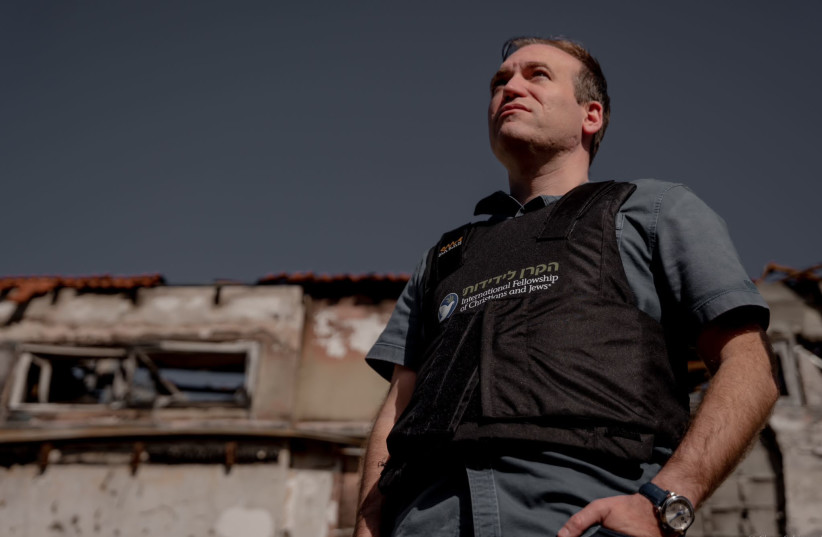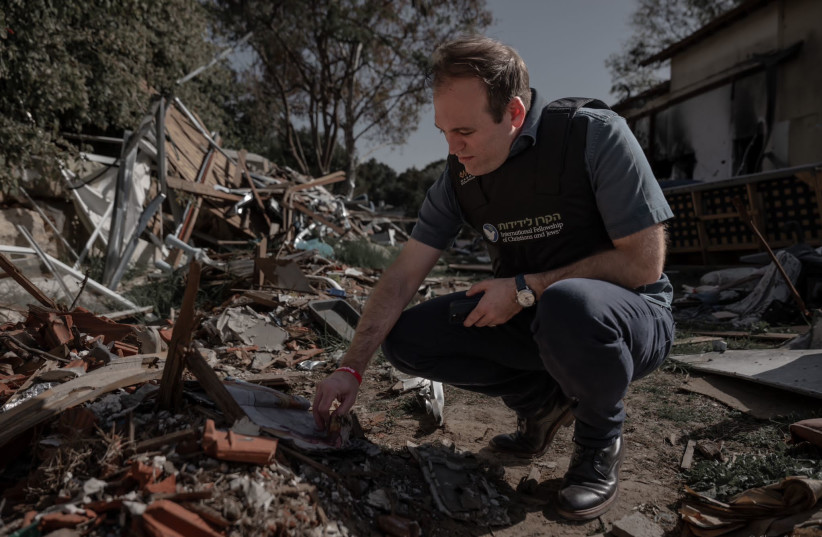The President of the Congress of Christian Leaders, who helped lay the groundwork for the Abraham Accords with the United Arab Emirates and Bahrain, has expressed optimism about the potential for peace between Israel and Saudi Arabia, suggesting that such a development could materialize in the upcoming months.
"Despite whatever is being said publicly, I know the leaders in this part of the world, and the last thing they're going to do is let a bunch of terrorists and extremists rob what is in their own best interest," Rev. Johnnie Moore told The Jerusalem Post on Thursday. "I am no less certain that we will have peace, and I think there might be a narrow window of opportunity in the coming months."
Moore helped organize the Trump campaign's Evangelical advisory board in 2016 and was part of the first delegation of Evangelical leaders to the United Arab Emirates in October 2018, during which talk about normalization of ties occurred. He also took part in many subsequent meetings throughout the region.
In addition, Moore said he spent years cultivating a multi-tiered relationship between the US and Bahrain, with the goal of not only increasing economic, political, and security cooperation but also combating extremism and terrorism in all its forms, as well as spreading coexistence and tolerance.

On October 15, one week after the Hamas massacre, Sen. Lindsey Graham tweeted, "Having spoken with Israeli and Saudi officials today, I am confident the effort by the United States to help normalize the relationship between Saudi Arabia and Israel is moving forward in this dark hour." Moore responded to that tweet, "Neither Israel nor Saudi Arabia will allow the Islamic Republic the privilege of sabotaging their efforts to make peace. Ironically, with the Hamas terrorists vanquished, peace may be easier — at the right time."
He told the Post on Thursday that before October 7, there was no role for the Gulf States within the Palestinian-Israeli conflict. However, in the aftermath of the war, "that may exist in the future as everyone decides.
"When it comes to a different future for Gaza Palestinians, I believe we're more likely, not less likely, to see Arabs and Israelis work together as a byproduct of peace between those countries."
Moore was in Israel on a solidarity trip, during which he also met with Jewish leaders, including President Isaac Herzog, and several members of Knesset and other leaders. Moore also visited several communities in southern Israel to see firsthand the atrocities of October 7.

It is not 1938
"It may feel like it is 1938, but it is not 1938 for a couple of reasons, and one of those reasons is that the Jewish communities in the State of Israel have more friends and, chief among them, are hundreds of millions of Evangelical Christians around the world," Moore said.
He said Christian support can be found in the United States, Europe, South America, and Africa.
According to Moore, as many as 10% of the 300,000 people who marched for Israel in Washington in November were Christian. Liberty University in Virginia hosted families of hostages in front of thousands of students. Most megachurches have held prayers for Israel since the war started.
The war has also reawakened a thirst for Israel among the younger population of Christians, as well, Moore said.
October 7 "reminded Evangelicals not only of their love for Israel and the Jewish people but the importance of actually doing something about it."
In addition, he said he had seen new Jewish and Christian alliances that transcend politics.
"The pastor in me always says that the remedy for trauma is community. It's just sometimes to sit together," Moore added. "That is my primary message here: Israel, you are not alone."
